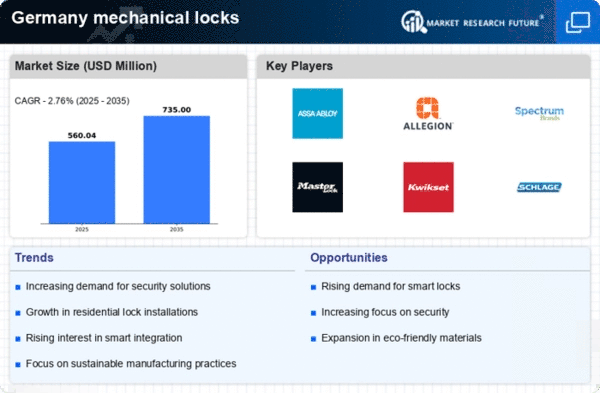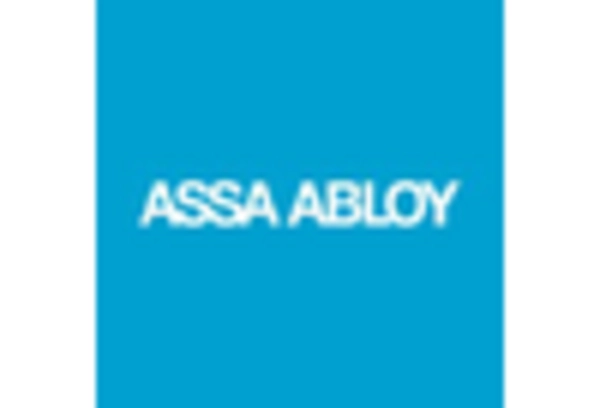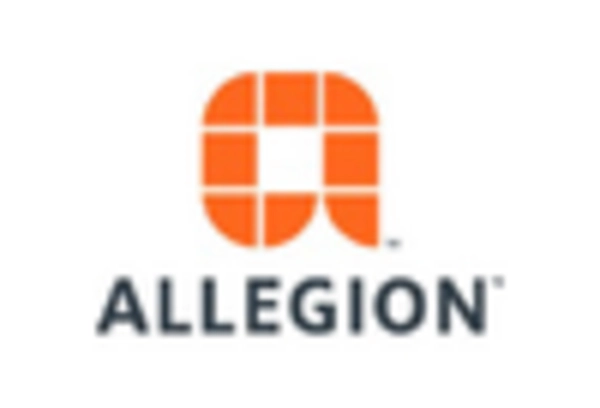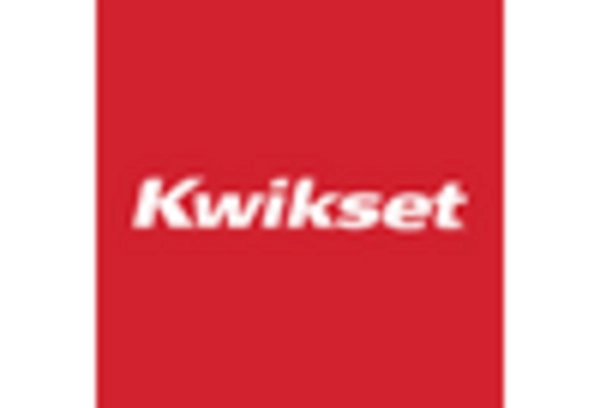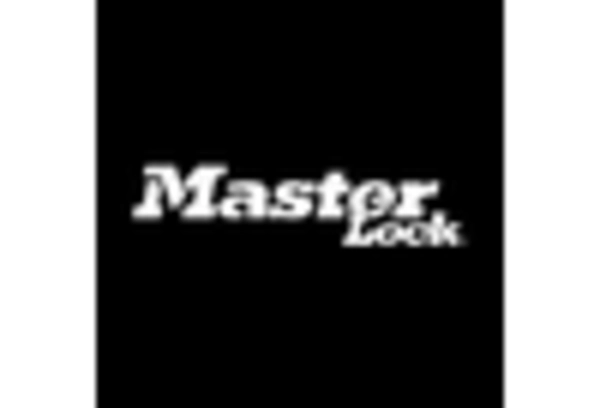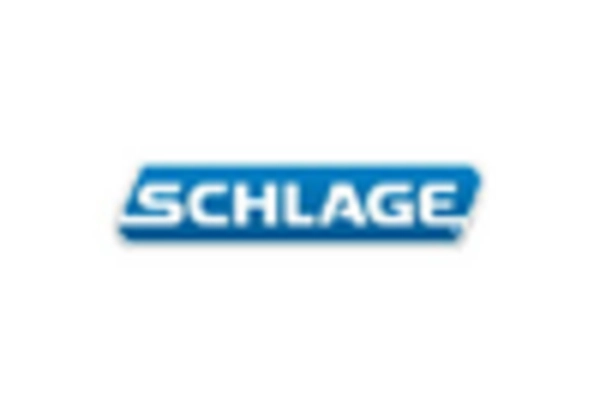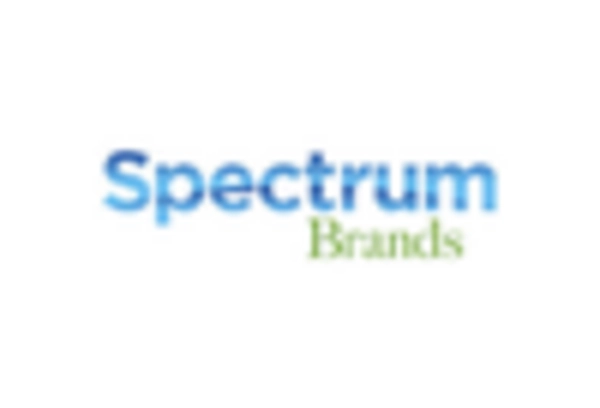Increased Awareness of Security Risks
As security risks continue to evolve, there is a heightened awareness among consumers and businesses in Germany regarding the importance of robust locking systems. The mechanical locks market is experiencing growth as individuals seek to protect their properties from theft and vandalism. Reports indicate that property crime rates in urban areas have prompted a shift towards more secure locking solutions. This trend is likely to drive demand for high-quality mechanical locks, as consumers prioritize security features over cost. Manufacturers are thus encouraged to enhance their product offerings to address these concerns, potentially leading to increased sales and market penetration.
Technological Advancements in Lock Design
The mechanical locks market is witnessing a transformation due to advancements in lock design and manufacturing processes. Innovations such as improved materials and precision engineering are enhancing the durability and effectiveness of mechanical locks. In Germany, the adoption of advanced manufacturing technologies is expected to increase production efficiency, thereby reducing costs for consumers. This trend may lead to a broader acceptance of mechanical locks in various applications, from residential to industrial settings. As manufacturers invest in research and development, the mechanical locks market could see a rise in demand for innovative products that offer superior performance and reliability.
Regulatory Compliance and Safety Standards
In Germany, stringent regulations regarding safety and security are influencing the mechanical locks market. The government mandates specific safety standards for locking mechanisms, particularly in commercial buildings and public facilities. Compliance with these regulations is crucial for manufacturers, as failure to meet safety standards can result in significant penalties. The mechanical locks market is likely to see a surge in demand for products that adhere to these regulations, as businesses prioritize compliance to avoid legal repercussions. Furthermore, the emphasis on safety is expected to drive innovation in lock design and technology, ensuring that products not only meet but exceed regulatory requirements.
Growing Urbanization and Infrastructure Development
The ongoing urbanization in Germany is driving the mechanical locks market as cities expand and new infrastructures are developed. With an increasing number of residential and commercial buildings, the demand for reliable locking solutions is on the rise. In 2025, the construction sector in Germany is projected to grow by approximately 3.5%, which directly correlates with the need for mechanical locks. As urban areas become denser, the emphasis on security in both public and private spaces intensifies, leading to a greater reliance on mechanical locks. This trend suggests that manufacturers in the mechanical locks market must innovate to meet the evolving security needs of urban environments, potentially increasing their market share in a competitive landscape.
Rising Consumer Preference for Traditional Locking Systems
Despite the growing trend towards smart locks, there remains a strong consumer preference for traditional mechanical locks in Germany. Many individuals and businesses value the simplicity and reliability of mechanical locking systems, viewing them as a proven solution for security. This preference is particularly evident in older buildings and historical sites, where maintaining the aesthetic integrity is crucial. The mechanical locks market is likely to benefit from this trend, as manufacturers focus on producing high-quality, aesthetically pleasing locks that cater to traditional tastes. This duality in consumer preference may create a niche market for mechanical locks, ensuring their continued relevance in an increasingly digital world.


